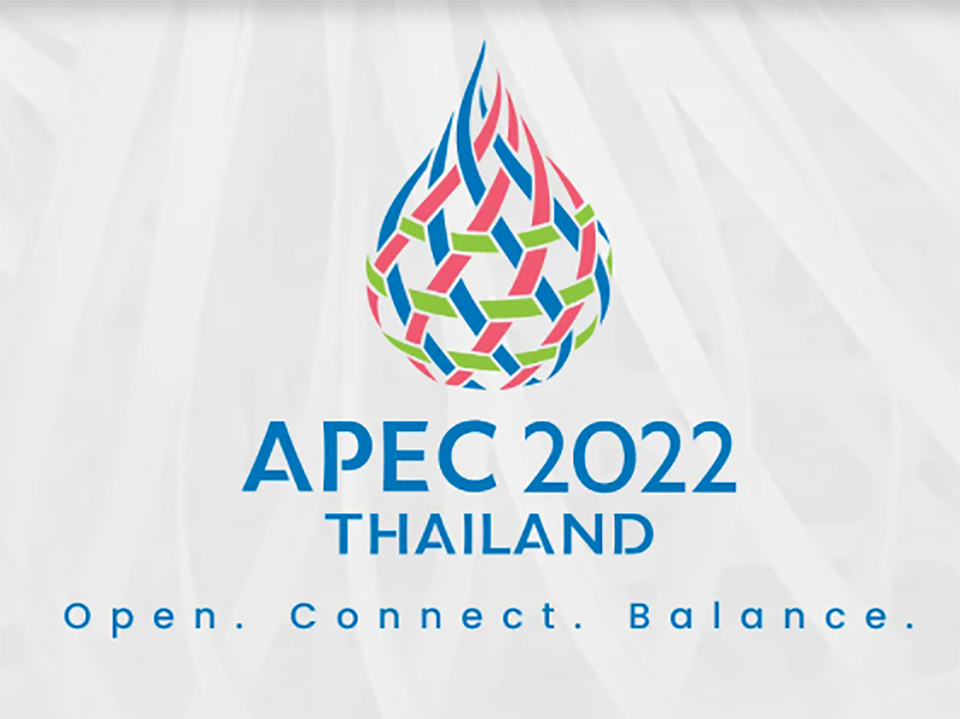
In 1993, APEC Leaders gathered in Seattle and issued a Declaration, stating that APEC economies have an opportunity to build a new economic foundation for the Asia-Pacific in the post-Cold War era. The Declaration then outlined how APEC was emerging as a new voice. It was leading the way into the 21st century through a spirit of openness, advances in technology to lower distance barriers, and an improved environment to ensure sustainable growth and a secure future for its people.
Fast forward nearly three decades to the present, APEC economies have once again reached an important juncture in the global strategic and economic landscape. This time though, it is against the backdrop of an unprecedented public health crisis and its devastating socio-economic impacts, which the global economy has now endured for two years and counting. The only silver lining is perhaps that it has uncovered the imbalances in our way of life and business conduct and provided strong impetus to adjust our sails.
Thailand has taken this important cue and identified a clear pathway for the Asia-Pacific to enter a post COVID-19 era as we assume our important task of APEC Host Economy for 2022. We are doing so under the theme “Open. Connect. Balance.” which in our estimation, will depend critically on leveraging the previous good work done within the APEC Community and elsewhere. If successful, it will mean the Asia-Pacific region is in good shape to rebound quickly and strongly.
As ASEAN Chair in 2019, Thailand’s theme was “Advancing Partnership for Sustainability”, which similarly embraced the concept of “Open. Connect. Balance.” namely, Thailand’s leadership that year was notable for the adoption of the ASEAN Outlook on the Indo-Pacific, the successful conclusion of negotiations on the Regional Comprehensive Economic Partnership (RCEP), advancing the notion of “Connecting the Connectivities” for seamless logistics and regulatory harmonisation, and enhanced environmental responsibility through the ASEAN Plan of Action to Combat Marine Debris.
Our dedication to inclusive and sustainable growth has also been reiterated at prominent international fora, such as the 2nd Partnering for Green Growth and Global Goals 2030 Summit in May 2021, and COP26 in November 2021. Thailand joined other countries in raising awareness on the interconnectedness between humans and nature, and stressed the importance of the “One Health” approach to mitigate risks from emerging diseases in the future. We also took the opportunity to present our forward-looking strategy on the Bio-Circular-Green Economy Model (BCG) as a paradigm shift towards environmentally friendly economic growth.
Closer to home in our subregion under ACMECS, Thailand has promoted an ACMECS Master Plan, comprising three pillars — seamless connectivity, synchronised ACMECS economies, and smart and sustainable ACMECS — to strengthen member states’ efforts to create multidimensional connectivity so as to improve people’s livelihoods and narrow the development gap.
Thailand has consistently promoted international cooperation to develop connected regions and sustainable growth. At present, concrete examples of our international advocacy for sustainability abound, cumulatively placing Thailand in a strong position to reinvigorate the sustainability agenda in APEC as we all work towards recovery.
At the APEC Informal Senior Officials’ Meeting (ISOM) last December in Phuket, our first event under the APEC 2022 Host Economy Year, we formally committed to continuing APEC’s spirit of cooperation under our theme “Open. Connect. Balance.” aiming to lead APEC by being open to all opportunities, connected in all dimensions, and balanced in all aspects, to transform our economies towards inclusive and sustainable development. To further integrate sustainable development and environmental objectives into APEC’s future growth model, Thailand has introduced BCG to APEC. In the year ahead, we plan to concretise the role we believe that BCG has in reinforcing APEC’s commitments in the Putrajaya Vision 2040 and the Aotearoa Plan of Action. In our view, Thailand’s proposed BCG model serves as the critical adjustment APEC needs to open, connect and balance for sustainable development, as a shared goal for humankind and our planet.
(NNT) – Article by Thani Thongphakdi Permanent Secretary for Foreign Affairs of Thailand
 |
 |
 |





